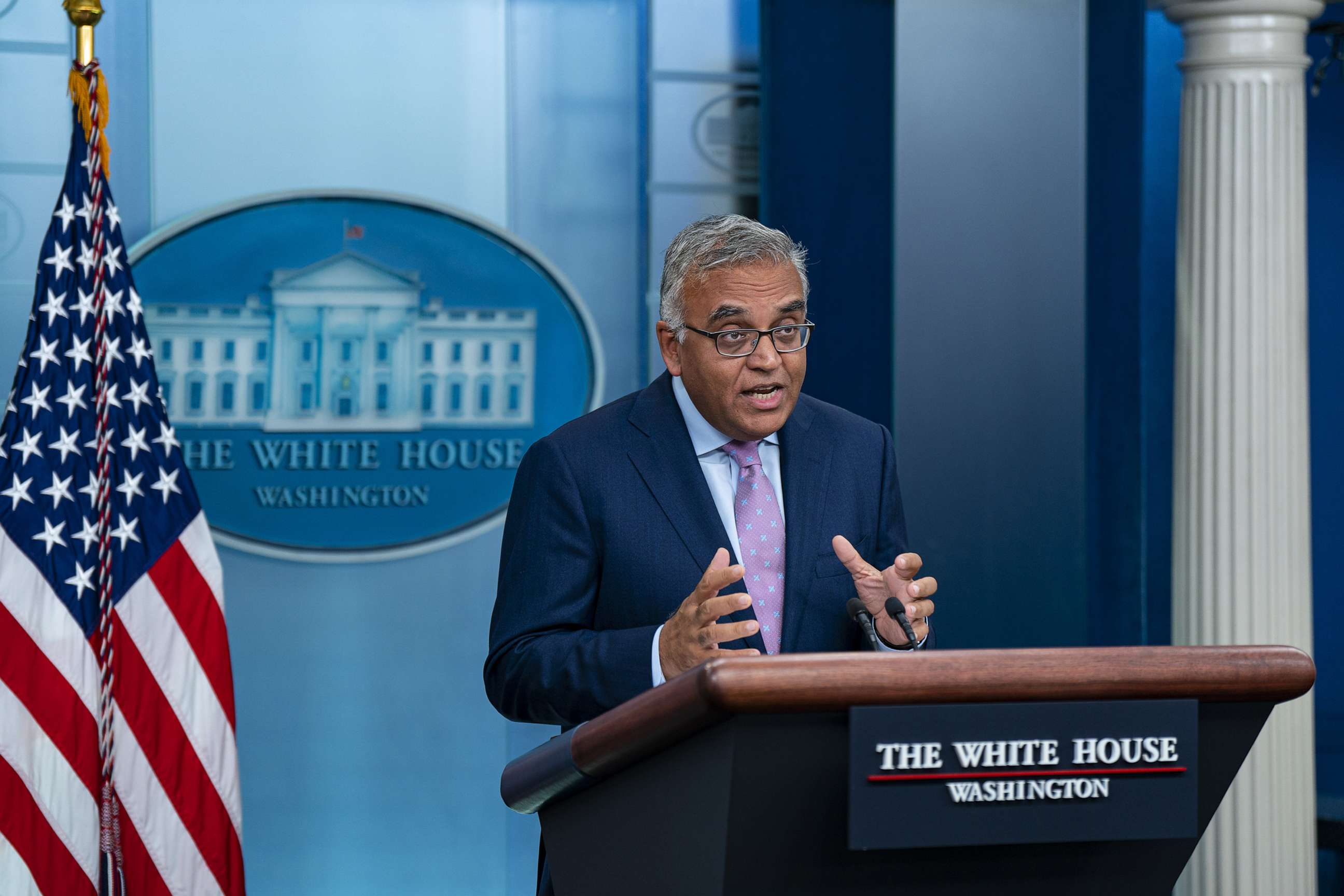As post-Thanksgiving COVID hospitalizations spike, Dr. Jha urges people to get new booster
"The updated vaccine is essential," the White House's COVID-19 coordinator said.
The White House's COVID-19 coordinator on Sunday said a sharp rise in cases and hospitalizations since Thanksgiving wasn't "totally" surprising -- and he reiterated that holiday gatherings would be safer if people received their updated vaccines.
"We've seen increases each of the last two winters and then what else is happening? In colder, drier air the virus spreads more efficiently. ... The good news here is that we can prevent those infections from turning into serious illness if people go out and get that updated bivalent vaccine," Dr. Ashish Jha told ABC "This Week" co-anchor Martha Raddatz of the 40%-plus jump in COVID-19 numbers.
"The updated vaccine is essential for keeping people out of the hospital. So we're making the case that we're at a point where it's safe to gather, but you still have things to do," said Jha, who for months has been telling the public that keeping current on their shots is the best way to return to normalcy while limiting illness.
The Biden administration has both acknowledged continuing strain from COVID-19 in parts of the country while saying the pandemic's darkest period is in the past given the ready availability of treatments and vaccines.
On "This Week," though, Raddatz noted statistics tell a slightly different story.
She cited one figure from Jha himself that less than half of nursing home residents had gotten their updated booster despite being in a high-risk group. "Why hasn't this been happening?" she asked.
"A lot of people are confused about whether they need one or not," Jha said. "We're being very clear about this: If you've not gotten a vaccine in the last six months, it is essential to go out and get the new updated bivalent."
Jha was also pressed by Raddatz on the low uptake of the new booster so far, as well as low mask use in many parts of the country. "How can you say that is really working?" she asked.

He said the testing, treatment and vaccine strategy needs to be implemented at many levels of society beyond the federal government -- with help from governors and mayors, religious leaders and more -- focusing on older people most at risk.
"If we're going to get a country as big and diverse as ours through this difficult period, we're all going to have to pull on this together," he said.
But, Raddatz said, polling from the Kaiser Family Foundation found that many people were still unsure what the benefit would be of updating their vaccines.
While government data shows about 69% of the population completed their primary vaccine series, only 14% of people older than 5 have gotten the latest booster, which better protects against newer strains of the virus.
"From a benefit point of view, these are incredibly safe vaccines. They clearly work. They clearly reduce infections to some degree, hospitalizations and deaths to a very, very large degree," Jha said. "The thing I remind people -- people often say, 'Well, I got my booster last year, do I really need it?' And I say, 'Well, I got my flu shot last year. I don't expect that to protect me this winter. I go out and get my flu shot every winter,' and that same way people have to go out and get their COVID shot."
Separately, Raddatz asked Jha about anecdotal reports of shortages for children's medicine like amoxicillin.
Jha said that while manufacturing and supply is "good," the demand "is unprecedented" in some areas given circulating viruses -- COVID-19 as well as the flu and respiratory syncytial virus (RSV).
That was causing "spot outages," Jha said, but he said he was encouraged that decreasing cases of RSV would ease the problem.
"Our job is to make sure that supply continues, in fact ramps up further, and that we get it into stores," he said. "That, I am confident, will continue to happen."




